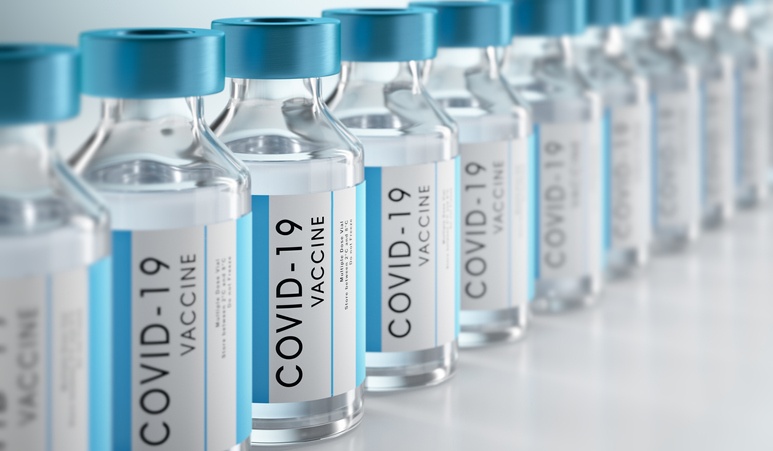

As coronavirus (COVID-19) vaccine distribution ramps up nationwide, houses of worship are looking at the impact on their operations — and their people. While health and safety come first, there may be new opportunities to support your workplace and ministry.
Guy Russ, assistant vice president — Risk Control at Church Mutual Insurance Company, S.I. (a stock insurer)1, answers several key questions to help church leaders update plans and procedures for the months ahead.
______________________________________________________________________________
We’ve hit the one-year mark of our “reshaped reality,” and it’s continuing to evolve. It remains vitally important to follow local, state and national health regulations and protocols — but the increase in vaccinations signals the time is right to consider what’s next. At Church Mutual, we have been guiding houses of worship and other faith-based organizations on factors to consider.
Q: What do church leaders need to know about vaccine timing and immunity?
Vaccination is an important — and encouraging — step in addressing the pandemic. However, it will take time for the population at large to build immunity.
Even after a person is vaccinated, scientists say it takes approximately five to six weeks after the first dose for maximum immunity to build up. Additionally, while getting a vaccine will probably prevent a person from becoming sick, it’s possible a vaccinated person can become an asymptomatic carrier of the virus. Researchers are still looking into it.
You can mitigate risk as an individual, and as an organization, by continuing to observe basic safety precautions such as mask-wearing and social distancing. Health authorities believe these practices protect those who have been vaccinated and are still building immunity as well as help slow the spread of the virus.
For the latest information on all the authorized and recommended vaccines, including the number of doses required and timing, the Centers for Disease Control and Prevention (CDC) website is always a good place to start.
Q: Should houses of worship mandate that employees get vaccinated? And if so, how would they ensure compliance?
Each organization needs to determine what policy will work best for its workplace and employees. As you consider your options, you should consult with your employment attorney to ensure you’re following guidance provided by the Equal Employment Opportunity Commission (EEOC) on the responsibilities and rights of employers and employees in relation to the COVID-19 vaccines.
If your organization is thinking about mandating the vaccine, here are three major things to consider: access, cost and opt-outs. First, the vaccine should be readily available to your employees and volunteers. Second, while the vaccine itself is being paid for with federal tax dollars, some vaccine providers might charge an administration fee. If your health insurance provider doesn’t cover the fee, you should consider whether your organization can. And finally, some employees may opt out of getting the vaccine. You should consult with your employment attorney in advance to prepare a response.
Q: Do you think worship facilities should require members to get vaccinated to participate in in-person services and activities? Is that even workable?
You certainly have an opportunity as an organization to encourage vaccination, particularly as it becomes more readily available and accessible. However, trying to require it would be complicated — especially since vaccine distribution is a work in progress.
The best approach at this time is to plan events and activities for 2021 under the assumption you will need to take precautions for COVID-19. Check in regularly with the CDC and follow its guidance on when or if you can loosen restrictions.
Q: How can houses of worship serve their congregations and continue building community during this transition period?
We are so impressed by the flexibility and resilience we have seen among worship facilities over the last year. Through it all, you’ve found ways to manage your business, facilitate giving and bring your congregations together. You’re going to need to call on your creativity for a little while longer, but we do have a few ideas to get you started as you think about the next few months.
- Vaccinated volunteers — recruit a group to help unvaccinated members of the congregation with errands and other tasks.
- Mixed activities — organize activities like book clubs and study groups that can be done both in person and online.
- Fresh video content — create a library of spiritual instruction and encouragement, available to members anytime.
We know how challenging it can be to keep pace with every new development around COVID-19 and the related recovery efforts. Don’t hesitate to call on the experts — like your lawyers and insurers — for counsel and guidance. They can help protect your organization as your organization works to protect your members.
1Church Mutual is a stock insurer whose policyholders are members of the parent mutual holding company formed on 1/1/20. S.I. = a stock insurer.
Guy Russ is AVP of Risk Control at Church Mutual Insurance Company.



Can a church distribute a survey for it’s members to complete, anynomously and optional, asking if a member has been vacinnated to get a gauge on how much of the congregation has been vaccinated? Again, the questionnaire would be options and anyonomous (if they wanted to list their name it’s up to them). Thank you.